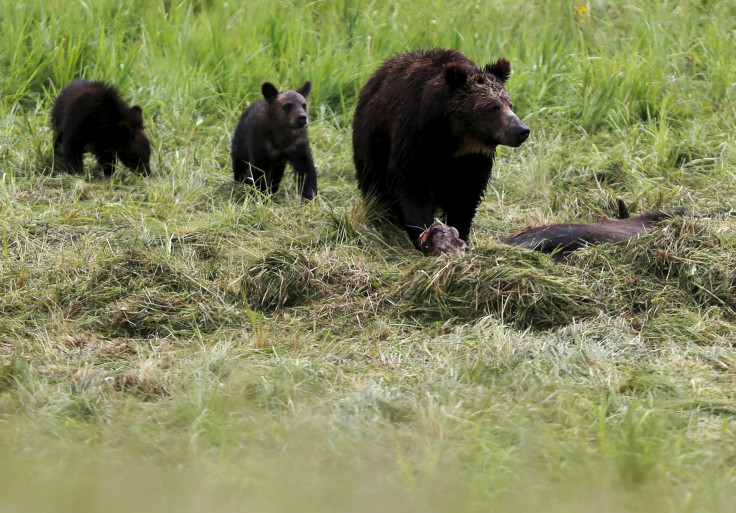Yellowstone Grizzly Bear To Be Euthanized For Mauling Montana Hiker

A grizzly bear that attacked and killed a hiker Friday in Yellowstone National Park will be euthanized, park officials said Monday. Authorities are also likely to euthanize two cubs in connection with the attack.
An adult female bear and at least one of her cubs were likely involved in the attack on 63-year-old Lance Crosby of Montana, park officials said in a press release. The bear’s paw measurements and a DNA sample are being examined to confirm the identity of the bear that mauled Crosby.
"The decision to euthanize a bear is one that we do not take lightly … Our decision is based on the totality of the circumstances in this unfortunate event," Dan Wenk, park superintendent, said, in the statement.
The bear and the cub have since been captured while the other cub remains in the wild. The authorities will offer the cubs to a zoo or rehabilitation center and if no permanent home is found they will be euthanized, park spokeswoman Amy Bartlett said, according to the Associated Press.
“Fortunately, these kind of incidents don’t happen that often. We have 3.5 million people coming to Yellowstone each year and risking those lives is not a chance we’re willing to take,” Julena Campbell, another spokeswoman for the park, said, according to the Washington Post.
Crosby’s body, which was partially consumed, was found by a park ranger Friday near the Elephant Back Loop Trail in the park’s Lake Village area, after the man was reported missing by his co-workers Friday morning.
According to the National Park Service (NPS), about 674 to 839 grizzly bears dwell in the Greater Yellowstone region, which is one of the last remaining large ecosystems in the northern temperate zone.
The last death from a bear attack in the park was recorded in 2011, the first in 25 years, according to the NPS. There have been only eight fatalities since the first recorded bear attack in the park, in 1916, Campbell reportedly said.
© Copyright IBTimes 2025. All rights reserved.






















